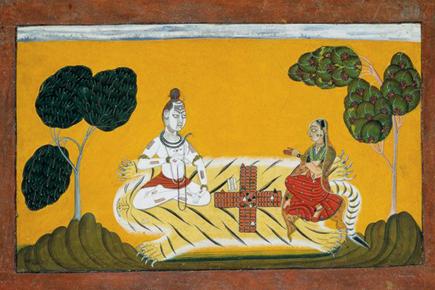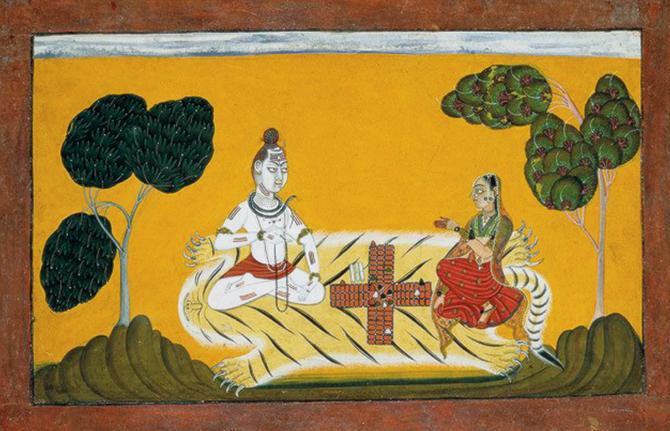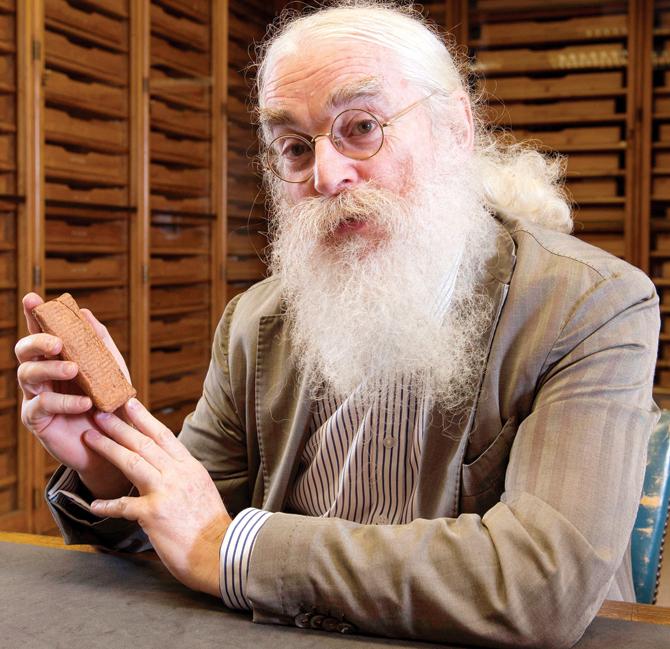The eminent philologist and assyriologist will be in town this week to talk about his childhood love -- board games

Shiva and Parvati play pachisi, in a painting by Devidasa of Nurpur at the Metropolitan Museum of Art. Ludo, says Dr Finkel, is the modern-day pachisi
Teetotallers will know that a well-known brand of tea leaves draws its name from an ancient Indian pastime, in which goats need to cunningly defeat a tiger. Board gamers will know that no real animals were used in this game. Dr Irving Finkel will further add that this ancient Indian game exists in several other parts of the world too — the Nepalese call it Bagh Chal; in Sumatra it is the Meurimueng-rimueng-do and it is Lupo e pecore in Italy. While the number and species of predators and prey vary, the rules stay the same — eat, or be eaten.
ADVERTISEMENT

Shiva and Parvati play pachisi, in a painting by Devidasa of Nurpur at the Metropolitan Museum of Art. Ludo, says Dr Finkel, is the modern-day pachisi
Dr Finkel, then, is not your average board game enthusiast. While he will willingly engage in an intense game of Monopoly, his day job is as assistant keeper, department of the Middle East, British Museum. Last year, he decoded a cuneiform tablet that contained a flood narrative similar and much earlier to the story of the Biblical Noah’s Ark. With his Gandalf-like beard and a love for decryption, it is not unusual to conclude that this 64-year-old philologist is a child at heart. His PhD thesis was on ancient Mesopotamian exorcistic magic spells, incidentally.

Dr Irving Finkel
Dr Finkel, who is in town this week to interpret a collection of cuneiform tablets and cylinder seals at the Heras Insitute, St Xavier’s College, is also delivering two public lectures, one on ancient and modern Indian board games, and another on his discoveries of the Mesopotamian flood narrative. “India is a bit like a volcano.
Some of the most successful board games came out of here and spread all across the world,” he says. Take Ludo, for example. The original ancient Indian game, which we are oblivious to, was pachisi or chaupar. Played by the royals and their subjects on elaborately embellished boards and pieces, the game became popular among children in 19th century Europe as Ludo. “Pachisi was an intellectual game that required quick thinking and great strategy, unlike the boring Ludo which crowds toy shops,” he says.
“Board games were a very humanitarian endeavour. With good and exciting rules, these can be liked by everyone, even when two people cannot have a proper conversation.”
Games: Ancient, Modern and Indian
When: September 21, 6.30 pm
Where: Education Centre, Dr Bhau Daji Lad Museum, Byculla East
Call: 23731234
Free
A Great Adventure: The Ark before Noah!
When: September 23, 6 pm
Where: Visitors Centre Auditorium, Chhatrapati Shivaji Maharaj Vastu Sangrahalaya, Kala Ghoda
Call: 22844484
Free
 Subscribe today by clicking the link and stay updated with the latest news!" Click here!
Subscribe today by clicking the link and stay updated with the latest news!" Click here!








